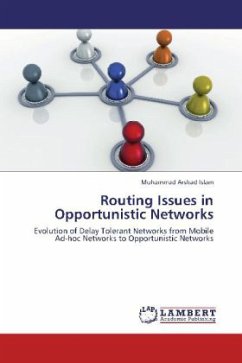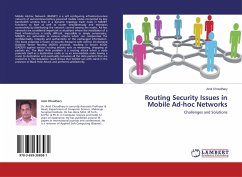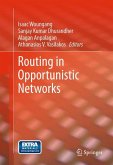The presence of an increasing number of mobile devices has prompted the demand to use them for information dispersion through opportunistic networks, which they form coincidently due to their geographic location. Opportunistic networks pose several new challenges to the current transmission protocols as they are not only capable of store and forward routing, but also lack the offline routing capability, i.e. source and destination must be connected to the network simultaneously. We can find several opportunistic network protocols in literature, but neither a solid comparison nor a trusted baseline has been presented. In this book, we have analyzed and evaluated eight existing routing algorithms on a common basis in an effort to grasp the strong and weak points of each of them and to see whether it is possible to design a hybrid technique that may take advantage of the strengths of several other techniques.
Bitte wählen Sie Ihr Anliegen aus.
Rechnungen
Retourenschein anfordern
Bestellstatus
Storno








